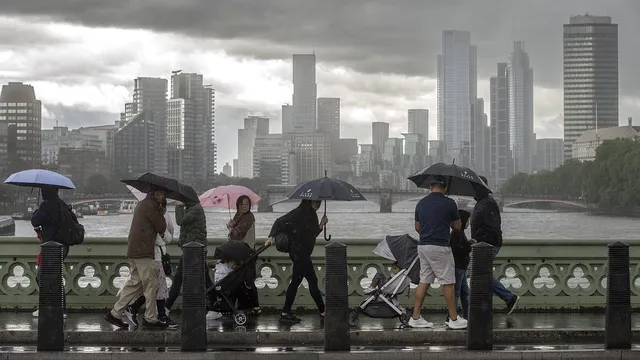
Britain experiences coolest summer in 9 years, averaging 14.37°C
2024-09-03 14:16- The average temperature across the UK this summer was 14.37°C, marking the coldest summer since 2015.
- Scotland experienced significantly more rainfall than England, with August being the wettest month.
- The Met Office attributes the cooler temperatures to Arctic air and notes that climate change is increasing the frequency of warmer summers.
Express your sentiment!
Insights
This summer, the UK experienced its coolest season in nine years, with average temperatures recorded at 14.37°C from June to August, which is slightly below the long-term average. The Met Office reported that both June and July had mean temperatures lower than average, while August saw a slight increase. The last time temperatures were this low was in 2015, when the average was 13.91°C. Despite some short-lived heatwaves, the overall weather was unsettled throughout the summer months. Rainfall varied significantly across the UK, with Scotland experiencing 373.8mm, which is 19% above its average, while England recorded only 159.4mm, 23% below its seasonal average. August was particularly wet, with some areas in Scotland receiving double their average summer rainfall. The summer also saw around average sunshine hours, with Northern Ireland receiving the least sunlight at just 82% of its long-term average. The cold conditions in June and July were attributed to a blast of Arctic air, driven by northerly winds. In contrast, August saw a shift to westerly winds, which brought slightly warmer Atlantic air. This fluctuation in weather patterns highlights the natural variability that can occur even amidst a trend of increasing warmer summers due to climate change. While this summer felt cooler compared to recent years, it is essential to place it within a historical context. The changing climate in the UK has led to a higher frequency of warmer summers, but cooler summers will still occur from time to time, as evidenced by this year's weather patterns.
Contexts
Britain has experienced its coolest summer in nine years, averaging 14.37°C, with heavy rainfall particularly affecting Scotland and Northern Ireland. This unusual weather pattern is shifting as the UK anticipates a brief heatwave this weekend, with temperatures in the North and Scotland expected to reach 26°C. This follows a summer marked by cooler temperatures, indicating a significant transition in weather conditions. The Met Office has issued warnings for potential thundery showers and increased humidity, especially in southern parts of the UK, as summer conditions make a return. The forecast for September remains unpredictable, with mixed conditions including rainfall, thunderstorms, and fog. The upcoming heatwave is driven by a warm air plume from continental Europe, which is expected to raise temperatures in areas like Greater London and Southampton to between 28°C and 29°C. However, northern regions will likely remain milder. Overall, the transition from a notably cool summer to an impending heatwave underscores the dynamic nature of the UK's climate, influenced by factors such as jet streams and atmospheric pressure systems. Despite the warm forecast, there are no signs of a heatwave comparable to last September's record highs.